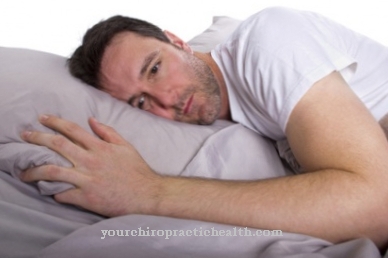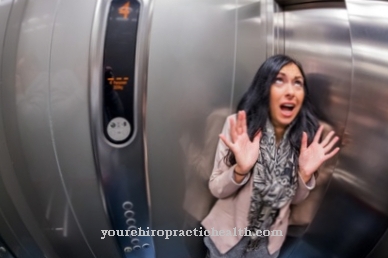Disorientation or Orientation problems can have harmless causes that will pass. Exhaustion, lack of sleep, lack of fluids, drug or alcohol abuse and overexertion can lead to momentary orientation problems at any age. But they can also indicate dementia. Therefore, one should question repeated disturbances of the sense of direction more precisely. To make this possible, here are four main questions about disorientation.
What are disorientation?

With the usual disorientation, a distinction is made between temporal disorientation, location-related orientation problems, situational disorientation and disorientation towards one's own person. With the onset of Alzheimer's dementia, first the temporal, then the situation-related and spatial and, in the last step, the personal orientation are affected.
Such disorientation is becoming more common and with less and less clear moments. Other disorientations can be described as momentary confusion, the causes of which appear understandable.The term "orientation disorders" is a generalizing term that has been introduced in medicine and psychiatry. Not much is said about the causes and forms of disorientation.
causes
Disorientation can occur in all possible contexts. They can be the result of certain diseases or occur after operations. Mental illnesses can lead to orientation problems. Progressive alcohol and drug abuse has already been described as a possible cause of disorientation.
In recent times, disorientation can also indicate an incipient chemical intolerance or damage to the brain from volatile solvents, wood preservatives, heavy metals or pesticides. In old age, disorientation is usually an indication of the onset of dementia or Alzheimer's disease. However, they can also indicate overwork, exhaustion, insufficient fluid intake, alcoholism, drug abuse and the like.
First of all, the orientation problems should be viewed as a symptom that can have many causes. That makes it very difficult to determine the cause. The severity of the clinical picture can also be very different. The diagnosis of disorientation should be placed in the hands of a neurologist or psychiatrist.
You can find your medication here
➔ Medicines for concentration and orientation disordersDiseases with this symptom
- dementia
- Alzheimer
- Creutzfeldt-Jakob disease
Complications
Orientation disorders lead to a long-lasting [[Stress9] experience for those affected. The memories are missing and cause fear or panic to break out. In some cases, there are regular panic attacks that are stressful for the person affected and those close to them. Helplessness and excessive demands arise.
To calm themselves down, some people start consuming medication or alcohol. This leads to further problems and side effects. There is a risk of an addiction developing. Orientation disorders cause emotional stress and can trigger further psychological disorders. Mood swings, irritability and moodiness set in. Depression, melancholy or mania can develop.
Some people develop aggressive behavior that extends to violence. The blood pressure rises and cardiovascular diseases can develop. People receiving treatment with disorientation often feel patronized. The underlying diseases are often incurable according to the current medical status and lead to a further deterioration in the state of health.
In many cases, prescribed drugs are designed to reduce anxiety. This causes a change in behavior. Apathy, indifference or disinterest in current events are possible side effects. Often there are changes in the immediate environment. Separations and withdrawal behavior can lead to social isolation.
When should you go to the doctor?
As a rule, the need to see a doctor strongly depends on the cause of the disorientation and should therefore be taken into account in every case. In many cases the disorientation occurs after the consumption of alcohol and other drugs. In these cases, no medical treatment is required, the patient just has to wait for the drugs to completely break down. A doctor or a clinic should, however, be consulted if drug use and thus disorientation occur more frequently. In this case, withdrawal is necessary.
A doctor must also be consulted if the disorientation occurs after an accident or after a blow to the head. This can be a harmful illness or a concussion that also needs to be examined by a doctor. You can also go to the hospital or call the emergency doctor. Even if the disorientation occurs for no particular reason, it is advisable to consult a doctor.
If the disorientation occurs after an operation or after medical treatment with anesthesia, it is a common symptom and the disorder disappears on its own after a short time without causing any further symptoms.
Doctors & therapists in your area
Treatment & Therapy

He doesn't always notice his disorientation. The age at which disorientation is noticed has to be taken into account, as well as recent experiences, changed sleeping habits, increased chemical exposure, changed drinking habits, medication taken, a new environment and the like.
First of all, a diagnosis is necessary that conclusively explains the disorientation. An x-ray of the brain may also be useful. Mentally caused disorientation needs to be treated very differently than organically caused disorientation.
Care emergencies such as insufficient fluid intake require a different measure than secret sleeping pill abuse or unrecognized old-age alcoholism. So there can be no uniform treatment of disorientation. The possible types of treatment for disorientation can include conversation therapies, drug treatments, concentration exercises, relaxation techniques and others.
Outlook & forecast
Treatment is usually not possible in the case of disorientation. These occur especially in old age and are associated with general spiritual confusion. Life is relatively difficult for the person concerned, as they can no longer cope with everyday life on their own due to the disorientation. This is how these people get lost and can sometimes no longer recite their own identity.
The disorientation are very often triggered by severe stress and lack of sleep. Treatment with medication usually does not take place. Therapies and discussions with a psychologist can be carried out to reduce the disorientation. The success of this therapy depends very much on the mental and physical condition of the person concerned.
The disorientation often occurs as a symptom in old age and is relatively common in this case. However, they are not reversible and are related to other diseases that cannot be treated directly. The quality of life decreases sharply with disorientation because the person concerned becomes dependent on other people.
You can find your medication here
➔ Medicines for concentration and orientation disordersprevention
Various measures are required to prevent disorientation. At any age, concentration exercises, abstaining from addictions, reducing exposure to chemicals or getting enough sleep are suitable measures.
A healthy diet, moderation with alcohol and medication or exercise in the fresh air provide the body with everything it needs. Mind and soul also want to be trained regularly and reduce later orientation problems.
You can do that yourself
Treatment is not always possible in the case of disorientation. They often appear after abuse of alcohol and other drugs. In this case, the patient must definitely stop the intake of these substances and sober up. It usually takes several hours for the disorientation to go away.
If the disorientation occurs suddenly and is associated with dizziness or headaches, the person concerned must take it easy and rest. High hydration speeds healing. This also applies to the patients suffering from stress and lack of sleep. The disorientation usually goes away on its own when the body can rest.
Orientation disorders are common in older people and are often associated with other diseases. In this case, no self-help is possible. Patients rely on the help of carers or families to cope with everyday life. In general, a healthy diet and lifestyle have a positive effect on disorientation. This also includes giving up smoking if necessary. Stress therapy and relaxation exercises can also be helpful.




.jpg)



















.jpg)



